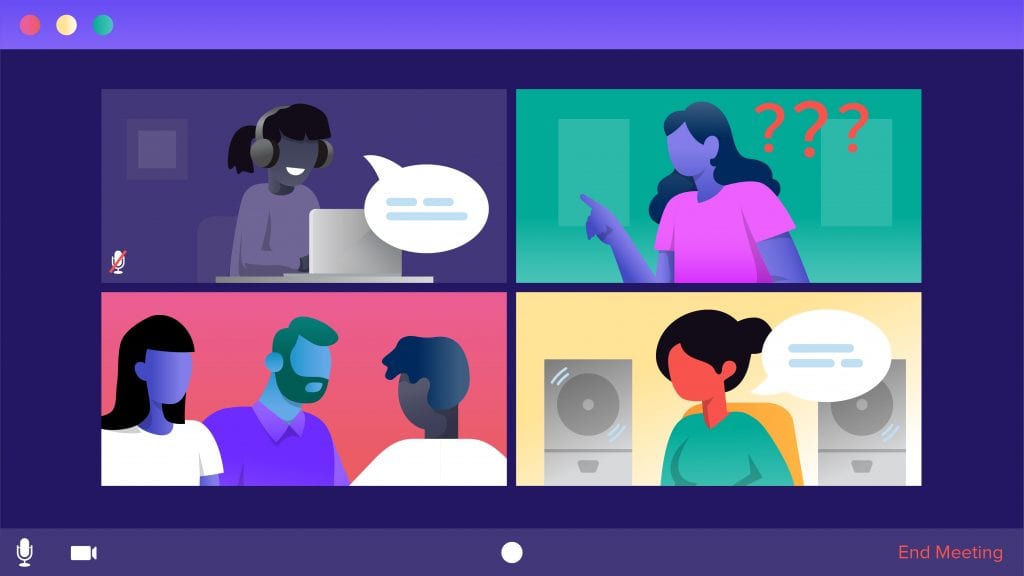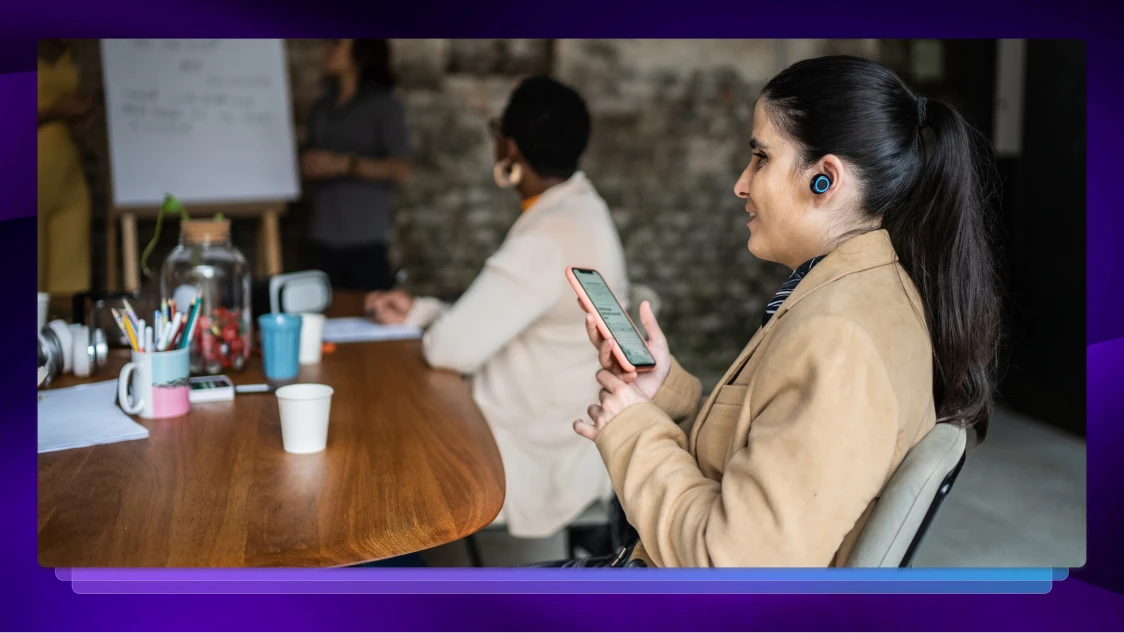Top 5 Bad Habits of Ineffective Zoom Callers
We've all spent enough time working remotely to develop some bad Zoom habits. Here's our (judgement free!) breakdown of 5 common foibles.

In the last year, nearly everyone has become deeply familiar with Zoom video conferencing. We use it for work. We use it for school. We use it to talk to family members, catch up with friends, and even take yoga classes. And in that time, many of us have developed some bad Zoom habits.
Now, before we go any further, a disclaimer — this is a safe space. A judgement free zone. We’re not here to shame anyone for their bad Zoom habits (we all have them, after all). We seek only to bring awareness to them, so that you can have more effective meetings in the future.
With that, let’s take a look at five habits of ineffective Zoom callers.
1. Forgetting to Mute
“Thou shalt mute unless thou art speaking.”
It’s the top Zoom Commandment because it’s the issue that comes up the most. While we’re all working from home, sometimes noises can’t be helped. Dogs bark. Kids shout. Spouses take their Zoom calls in the same room. That’s why you should always mute yourself unless you’re speaking — it will help everyone stay focused and keep the meeting on track.
2. Passive Listening
Remote work (and meeting fatigue) makes it much easier to be passive in meetings, to casually observe the discussions. But active listening and participation is crucial if you want to get the most out of your meeting. That’s why you should minimize distractions when you’re on Zoom — close out or hide other tabs and focus your attention on the meeting. If you’re struggling to pay attention during meetings, speech-to-text tools likecan be useful to help boost engagement and comprehension.
3. Multitasking
Multitasking during a Zoom meeting is extremely common, and usually pretty obvious. We’ve all been doing this Zoom thing for long enough to know when somebody is scrolling through something on their screen that isn’t the meeting they’re in. So, regardless of what you’re doing — looking up a recipe for dinner, responding to an email, or placing a bid for that sweet vintage jacket on eBay — just know that it can wait.
4. Not Offering Accessibility Options
Offering accessibility options like live captions or post-meeting transcripts ensures that all of your attendees can understand what’s being said on the call. With a speech-to-text partner like Rev, you can enhance your meetings with live captions powered by our accurate, industry-leading speech recognition AI. That way, whether you’re deaf, hard of hearing, or simply have a noisy household, you can rest assured that you’ll know what’s happening. Plus, Rev’s affordable, 99 percent accurate transcripts are a great supplement to your meeting notes.
5. Leaving Your Camera Off
It’s not always fun to turn your camera on for your video meeting. We get it. You want to stay in bed. Make a cup of coffee. Maybe it’s just a really bad hair day. But if you don’t turn your camera on, sometimes it sends a message to your coworkers — it can be perceived as impersonal, especially in a one-on-one or small group setting.
Additionally, Zoom calls are the only times that many remote teams interact with each other “face to face,” and leaving your camera off takes away the few visual cues your teammates get during their interactions with you. We’re all a little starved for connection right now — turning your camera on lets other people connect on a personal level, while also signaling to everyone that you’re engaged and ready to actively participate in the discussion.















